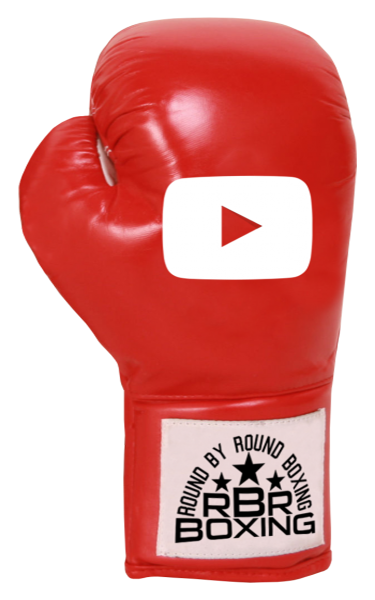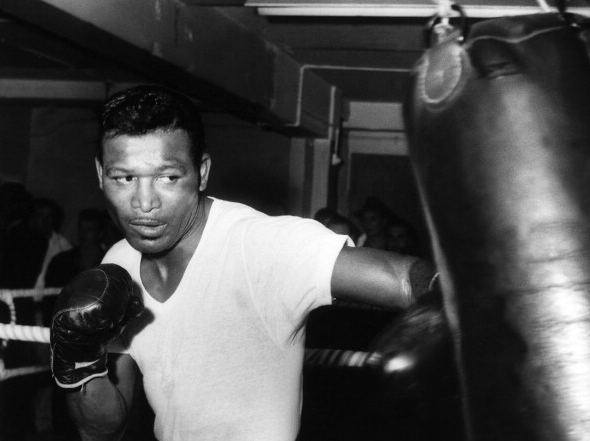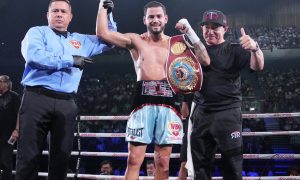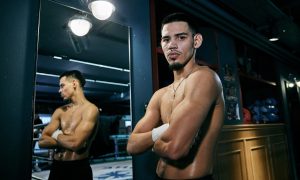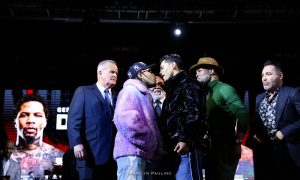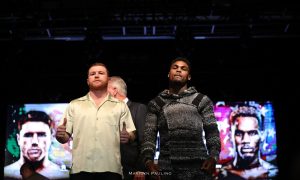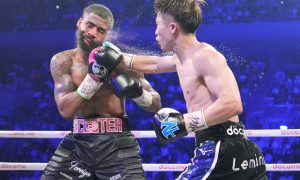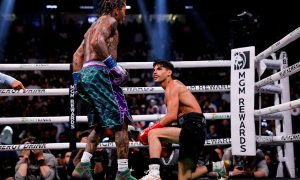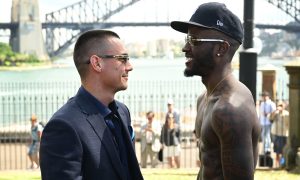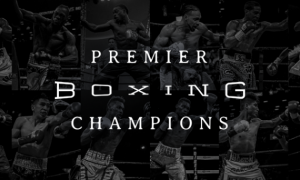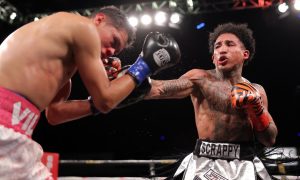5. Thomas Hearns 61-5-1, 48 KOs
Birthplace: Memphis, Tennessee
Professional Career: 1977-2006
1958 in America was an exciting time that gave birth to a number of icons that are permanently woven into the patchwork of American culture such as the hula hoop, the Chevrolet Impala, The Jolly Green Giant, Friskies Dry Cat Food, Kellogg’s Cocoa Krispies, the Grammy Awards and Thomas “Hit Man” Hearns.
There has been a debate as old as the sweet science itself that revolves around the question of a fighters punching power and if it is a matter of “nurture versus nature” or more simply put, “are punchers born or made?”
Thomas Hearns adds a definitive wrinkle into the conversational fabric that cannot be ironed out.
Hearns had an excellent amateur career compiling a record of (155-8, 11 KOs) winning a number of championships including the National Golden Gloves at light welterweight in 1977.
Also in 1977, Hearns began working with legendary trainer Emanuel Steward and turned professional with 17 straight knockouts. Point: nurture.
Regardless with which side of the argument one may align, what cannot be debated is the devastation that Hearns rained upon his opponents with his 18th victim Alfonso Haymon being the first to hear the final bell though taking a sustained beating for his effort.
The rangy 6’1″ Hearns continued to lay waste to the 147 pounder’s as he went 10-0, 9 KOs over the next 13 months, emphatically making his case to challenge WBA world welterweight champion and future Hall of Famer Pipino Cuevas.
In 1980 Cuevas was just beginning his fifth year as champion with 10 successful title defenses and Hearns was eager to bring his impressive streak to an end.
In the first round of the highly anticipated bout Hearns ripped the champion with jolting right hands and speared him with his long jab, easily winning the round.
The end came dramatically in round two when Hearns landed a titanic right hand to Cuevas’ head. With his feet seemingly rooted in the canvas the champion weaved back and forth drunkenly at the knees for two full seconds before a ruthless follow-up right hand that immediately cratered Cuevas into the canvas.
Cuevas somehow struggled to his feet but the fight was wisely stopped awarding Hearns his first of six world titles in five weight divisions against four Hall of Fame titleholders.
Hearns defended his title three times winning all by knockout before challenging Olympic Gold Medalist, media darling and WBC/WBA welterweight champion “Sugar” Ray Leonard 30-1 (22) in a unification fight for the ages with the winner claiming absolute welterweight supremacy.
Hearns entered the ring in front of a sellout crowd of 23,618 with an imposing record of 32-0 (30) for the superfight billed as The Showdown in which he and Leonard shared a combined 17 million dollars, a record at the time.
The fight lived up to the buildup and in a strange reversal of roles Hearns played the part of skillful boxer with Leonard stalking, looking to open up as the puncher.
The strategy was largely successful as Hearns continued to pile up the points round after round leaving Leonard searching for answers. Leonard’s left eye was slowly swelling closed and by the end of the 12th and things were going Hearn’s way though not without a couple anxious moments.
In the 13th round Hearns was caught by a Leonard right hand and was clearly hurt. Not giving Hearns a chance to recover Leonard swarmed furiously, eventually forcing the referee to stop the fight with Hearns dangling in the ropes.
It was Hearns’ last fight as a welterweight and Fight of the Year, considered by many to be one of the all-time great championship fights.
With Hearns’ 147 pound legacy firmly established, he moved up in weight and campaigned for many more years in multiple weight classes, providing fans with a level of drama and entertainment that will not be forgotten.
Greatest rival: His greatest rivalry was with Sugar Ray Leonard who he pursued into the Super Middleweight division. He finally got the rematch that he was chasing and it was controversially judged a draw despite dropping Leonard twice. Leonard himself later admitted that Hearns deserved the decision.



